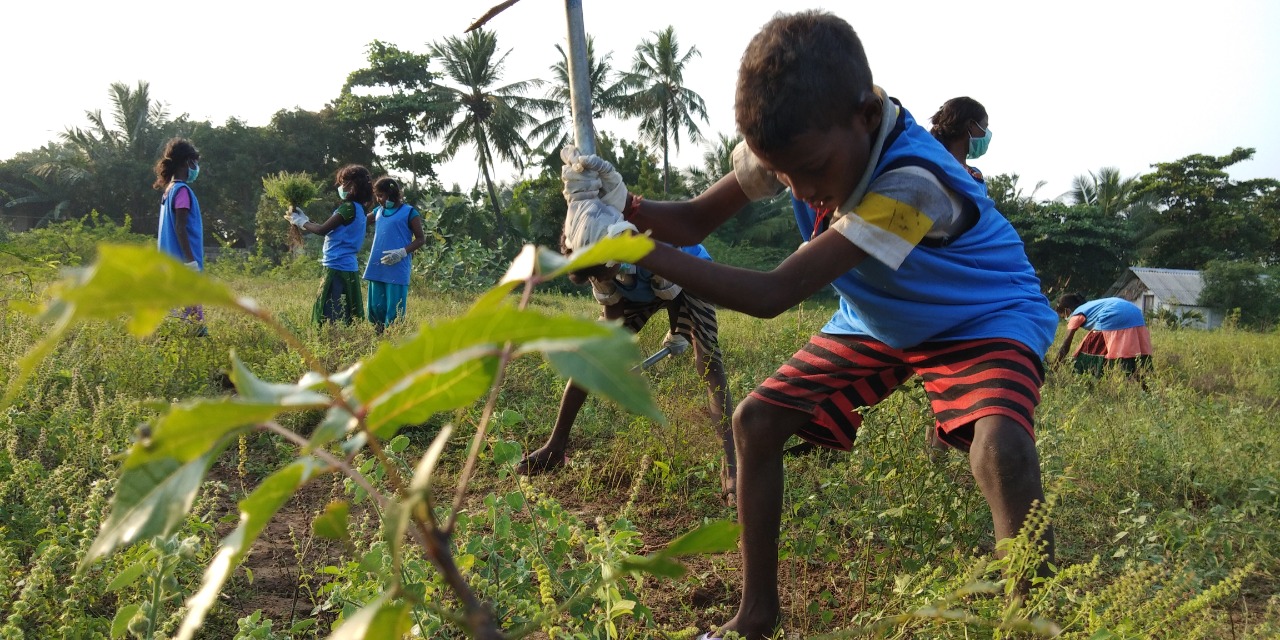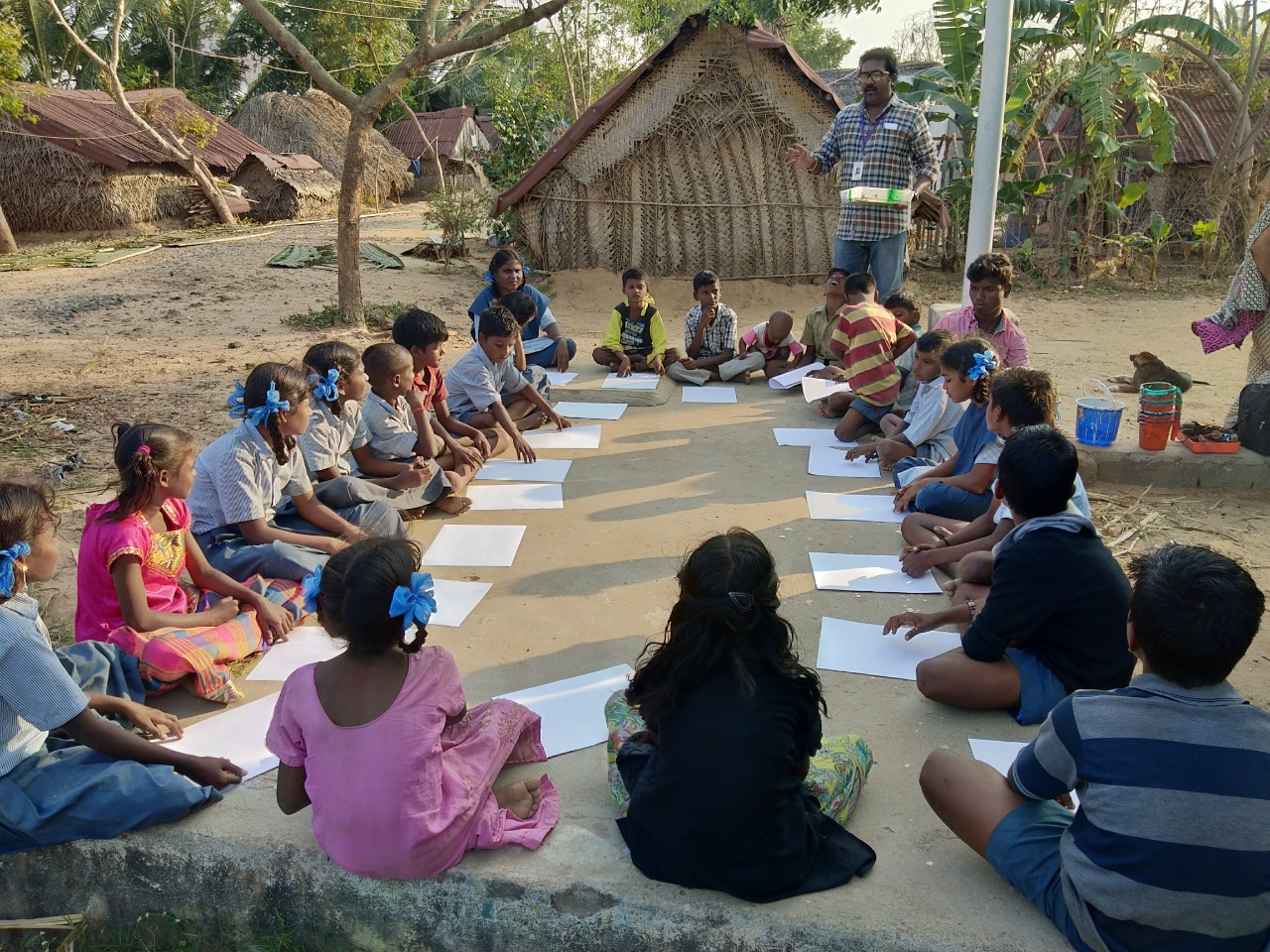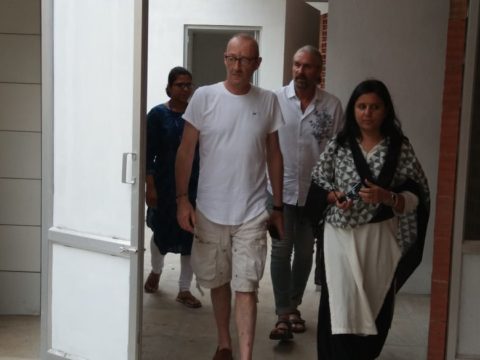-penned by board member Mrs Alo Pal
On March 4th, 2017 Sharana received a call from the Raj Nivas, and our then Lt. Governor Dr. Kiran Bedi asked us if we could get involved with the Irular community.

The Irular tribe is among the most ancient peoples that have walked our lands, one of the interesting findings from the important excavations and DNA analysis of the skeleton at Rakhigarhi established that the people of the Saraswati Sindhu Civilization had a great affinity with the South Indian Tribal Population and the Irulars in particular.

46 families of the Irular had settled on an open ground with no basic amenities whatsoever in TN Palayam about 15 years back. The men and women in the colony have been working in road construction and in the agriculture sector.


None of the children were going to school regularly and the older children babysat over the younger ones. A few years ago, they were often left to themselves in the slum while their parents worked.

Sharana got involved with the families with the help of Mr. Sakthivel, the spokesperson for the community, in February 2018. The entry point was via sports under our Seeds of Change (SOC) program and Mobile Library. Activities included games, book reading, drawing & craftwork, as well as homework help support during our weekly visits.


Sharana was welcomed into the community and we learned that in 15 years the families had fended for themselves and this was the first time an external agency had intervened to help in alleviating their living conditions. Another organization had supported the children through a tuition centre for a few months, but this support had stopped abruptly and without any prior intimation or follow-up. As of date, only Sharana supports these children.


In June 2018, the first batch of 25 children between the ages of 6 to 18 of the 35 children in the slum was enrolled in school under our Back-to-School program, and today all the children have been absorbed into the same.


Though Sharana has concentrated more on the younger children through outreach work with Seeds of Change and Mobile Library activity, as well as our BTS program, it reaches out to every member of the community through our larger outreach activity.

This batch of students is the very first-generation school-going generation of this community. Scholastic results are average, some though have adapted to the school routine well and last year 15-year-old Sandhya topped the 11th Standard in her school. Feedback from the school has been promising, after initial days of irregular attendance and shoddy uniform and appearance, the children now report on time clean and inculcated with good hygienic practices. This has been achieved by steady persistent outreach work by our social workers.

Attempts have been made by us to ameliorate their general living conditions. When we first started work here there were only four rows of huts with absolutely no civic amenities whatsoever. In 2019 Sharana attempted via another NGO Gramalaya for building toilets, but the project fell through as the community was unable to pay their share of Rs,5000/- per toiled out of a total cost of Rs,10000/-.

A Few years later the community applied for housing and toilet construction via the Adi Dravida Welfare unit of the Pondicherry Government and houses with toilets are now being constructed without external labour as community members are helping in the construction.


Children continue to maintain the playground clean for the SOC games. Sharana conducts regular storytelling and arts and sports sessions in the community centre built in the slum. In consultation with Sakthivel we are now exploring the possibility of running an evening tuition centre there.

Covid hit the community hard and all the families were included in our daily meal distribution scheme. The absolute absence of any remote access to digital devices meant that these first-time students lost out majorly in the past two years. Since we are actively thinking about opening the evening tuition centre, we plan to take our mobile digital program to the community three times a week, where we project Government School content to the students, a vital input they would never have been able to access on their own.

Much needs to be done still, and close watch during outreach keeps us in touch with the immediate needs of the families. At a later date, we intend to bring out a detailed report on this intervention and how our wholistic development-oriented model has transformed the lives and living conditions of the Irulars as well as forged a brighter future for the children with education.













